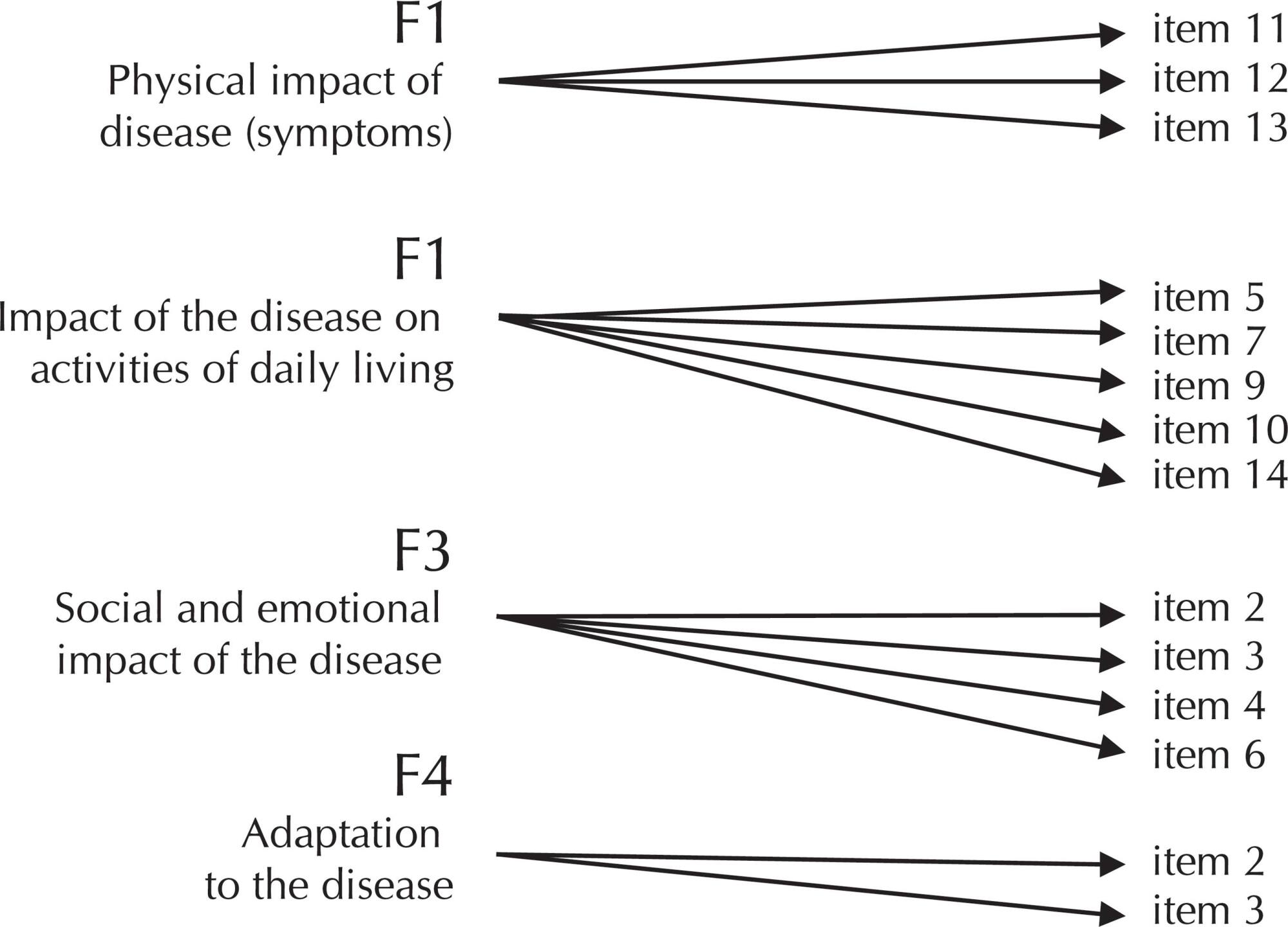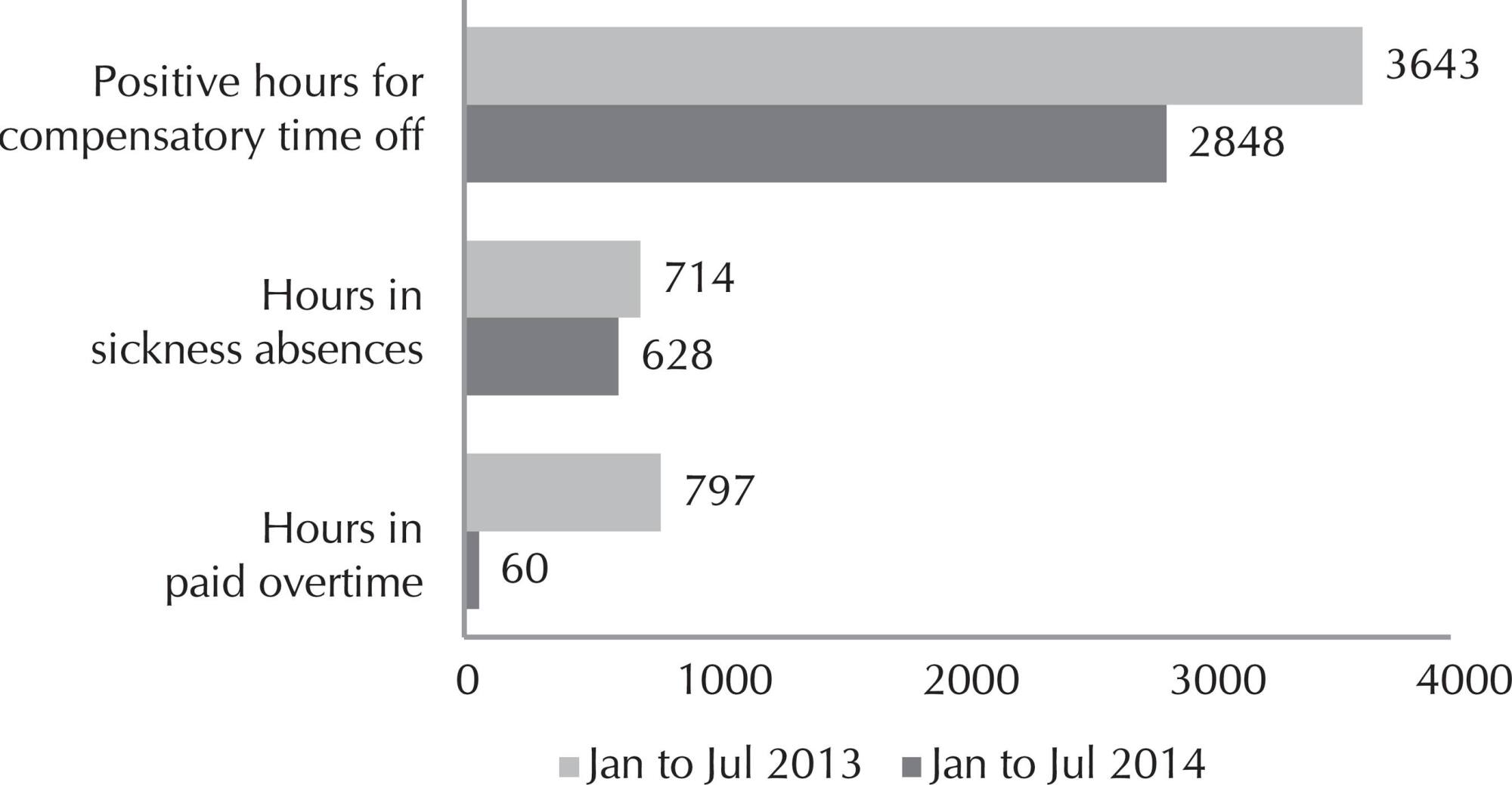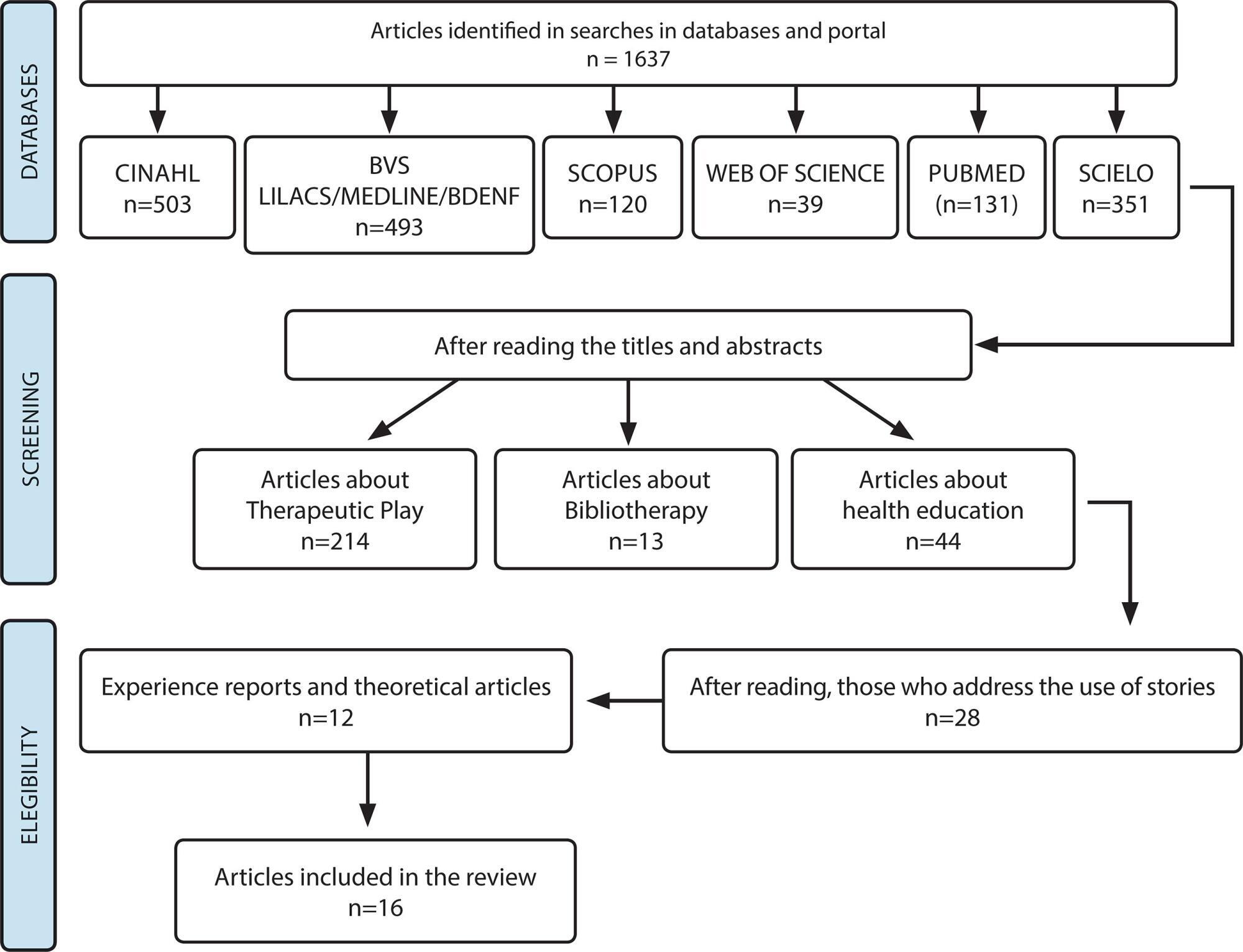-
RESEARCH
Technology-dependent children and the demand for pharmaceutical care
Revista Brasileira de Enfermagem. 2016;69(4):718-724
01-01-2016
Abstract
RESEARCHTechnology-dependent children and the demand for pharmaceutical care
Revista Brasileira de Enfermagem. 2016;69(4):718-724
01-01-2016DOI 10.1590/0034-7167.2016690415i
Views0See moreABSTRACT
Objective:
to understand the experience of mothers of technology-dependent children as regards pharmaceutical care.
Method:
this was a qualitative, descriptive-exploratory study developed based on open interviews using a structured characterization tool, and applied during home visits to 12 mothers caring for technology-dependent children. The data was submitted to inductive content analysis.
Results:
this study is split into two themes: (i) maternal overload during pharmaceutical care, demonstrating the need to administer drugs continuously and the repercussions of this exhaustive care on the caregivers; (ii) the ease or difficulty of access to the medicines required, showing informal strategies and support networks.
Conclusion:
pharmaceutical care is a daily challenge expressed in maternal overload and difficulty accessing the drugs, made worse by failures in the care network and coordinated care.
-
RESEARCH
Fasting of less than eight hours in urgent and emergency surgeries versus complication
Revista Brasileira de Enfermagem. 2016;69(4):712-717
01-01-2016
Abstract
RESEARCHFasting of less than eight hours in urgent and emergency surgeries versus complication
Revista Brasileira de Enfermagem. 2016;69(4):712-717
01-01-2016DOI 10.1590/0034-7167.2016690414i
Views0See moreABSTRACT
Objective:
to verify the occurrence of intraoperative and postoperative complications in patients undergoing urgent and emergency surgical procedures between January and December 2012, with fasting time of less than 8 hours.
Method:
a quantitative study was conducted, of the retrospective cohort type, through the analysis of medical records.
Results:
we included 181 records of patients undergoing surgical procedures with average duration of 59.4 minutes. Fractures correction surgeries stood out, totalling 32% of cases. We observed complications in 36 patients (19.9%), vomiting being the most prevalent (47.2%); followed by nausea (16.7%); need for blood transfusion (13.9%); surgical site infection (11.1%); and death (11.1%). The average fasting time was 133.5 minutes. The fasting time showed no statistically significant correlation with the complications investigated.
Conclusion:
intraoperative and postoperative complications were associated with the clinical conditions of the patients and not with the fasting time.
-
RESEARCH
Validation to Portuguese of the Debriefing Experience Scale
Revista Brasileira de Enfermagem. 2016;69(4):705-711
01-01-2016
Abstract
RESEARCHValidation to Portuguese of the Debriefing Experience Scale
Revista Brasileira de Enfermagem. 2016;69(4):705-711
01-01-2016DOI 10.1590/0034-7167.2016690413i
Views1See moreABSTRACT
Objective:
to translate and validate to Portuguese the Debriefing Experience Scale jointly with individuals that used high-fidelity simulation in learning.
Method:
methodological and exploratory study for an instrument translation and validation. For the validation process, the event “III Workshop Brazil – Portugal: Care Delivery to Critical Patients” was created.
Results:
103 nurses attended. Validity and reliability of the scale, the correlation pattern among variables, the sampling adequacy test, and the sphericity test showed good results. Since there was no relationship among the groups established in the exploratory factor analysis, the option was to follow the division established by the original version.
Conclusion:
the version of the instrument was called Escala de Experiência com o Debriefing. The results showed good psychometric properties and a good potential for use. However, further studies will contribute to consolidate the validity of the scale and strengthen its potential use.
-
RESEARCH
Factor analysis of an instrument to measure the impact of disease on daily life
Revista Brasileira de Enfermagem. 2016;69(4):697-704
01-01-2016
Abstract
RESEARCHFactor analysis of an instrument to measure the impact of disease on daily life
Revista Brasileira de Enfermagem. 2016;69(4):697-704
01-01-2016DOI 10.1590/0034-7167.2016690412i
Views0See moreABSTRACT
Objective:
to verify the structure of factors of an instrument to measure the Heart Valve Disease Impact on Daily Life (IDCV) when applied to coronary artery disease patients.
Method:
the study included 153 coronary artery disease patients undergoing outpatient follow-up care. The IDCV structure of factors was initially assessed by means of confirmatory factor analysis and, subsequently, by exploratory factor analysis. The Varimax rotation method was used to estimate the main components of analysis, eigenvalues greater than one for extraction of factors, and factor loading greater than 0.40 for selection of items. Internal consistency was estimated using Cronbach’s alpha coefficient. Results: confirmatory factor analysis did not confirm the original structure of factors of the IDCV. Exploratory factor analysis showed three dimensions, which together explained 78% of the measurement variance.
Conclusion:
future studies with expansion of case selection are necessary to confirm the IDCV new structure of factors.

-
RESEARCH
Association of frailty in hospitalized and institutionalized elderly in the community-dwelling
Revista Brasileira de Enfermagem. 2016;69(4):691-696
01-01-2016
Abstract
RESEARCHAssociation of frailty in hospitalized and institutionalized elderly in the community-dwelling
Revista Brasileira de Enfermagem. 2016;69(4):691-696
01-01-2016DOI 10.1590/0034-7167.2016690411i
Views0See moreABSTRACT
Objective:
to investigate the association between frailty with hospitalization and institutionalization in a follow-up study of elderly residents.
Method:
the follow-up study was performed in 2008 and 2013 with elderly of both genders, aged 65 years and older who were living in the community-dwelling. The sampling procedure performed was probabilistic, with dual-stage clustering. In 2008, 515 elderly people were interviewed and, in 2013, 262. We used the socioeconomic and demographic data, self-reported morbidity, specific data of hospitalization and institutionalization. Frailty was measured by the Edmonton Frail Scale (EFS), and functional capacity through the Functional Independence Measure.
Results:
we found the mean gross EFS score was higher among resident elderly who were hospitalized and institutionalized and was statistically significant in both investigated years.
Conclusion:
the confirmation of association between frailty and hospitalization and institutionalization reinforces the importance of the subject, and highlights frailty as an important tool for risk estimates for these adverse events.
-
RESEARCH
Associação da fragilidade em idosos internados e institucionalizados na comunidade
Revista Brasileira de Enfermagem. 2016;69(4):691-696
01-01-2016
Abstract
RESEARCHAssociação da fragilidade em idosos internados e institucionalizados na comunidade
Revista Brasileira de Enfermagem. 2016;69(4):691-696
01-01-2016DOI 10.1590/0034-7167.2016690411i
Views0See moreRESUMEN
Objetivo:
investigar la asociación entre la fragilidad y la internación e institucionalización, en un estudio de acompañamiento de residentes ancianos.
Método:
el estudio de acompañamiento fue realizado en 2008 y 2013, con ancianos de ambos sexos, de 65 años o más, los cuales vivían en la comunidad. El procedimiento de muestreo realizado fue probabilístico, con agrupamiento en dos etapas. Fueron entrevistados 512 ancianos en 2008 y 262 en 2013. Datos socioeconómicos y demográficos, morbilidad relatada por los mismos y datos específicos de internación e institucionalización han sido utilizados. La fragilidad fue medida por la escala Edmond Frail Scale (EFS) y la capacidad funcional por la escala Functional Independence Measure (FIM).
Resultados:
El promedio de la puntuación EFS fue mayor entre los residentes ancianos que fueron internados y hospitalizados, siendo estadísticamente significativa en los dos años investigados.
Conclusión:
La confirmación de la asociación entre la fragilidad y la internación e institucionalización refuerza la importancia del tema y enfatiza la fragilidad como un instrumento importante en la evaluación de los riesgos para estos eventos adversos.
-
RESEARCH
Analysis of managerial and healthcare indicators after nursing personnel upsizing
Revista Brasileira de Enfermagem. 2016;69(4):684-690
01-01-2016
Abstract
RESEARCHAnalysis of managerial and healthcare indicators after nursing personnel upsizing
Revista Brasileira de Enfermagem. 2016;69(4):684-690
01-01-2016DOI 10.1590/0034-7167.2016690410i
Views0ABSTRACT
Objective:
analyze healthcare and managerial indicators after nursing personnel upsizing.
Method:
a retrospective, descriptive study was conducted using data from computer systems of a university hospital in southern Brazil. Healthcare and managerial indicators related to the first half of 2013 and 2014 were statistically analyzed.
Results:
increases of 40.0% in the number of nurses and 16.0% in the number of nursing technicians led to reductions of 12.0% in the number of sickness absences, 21.8% in positive balance for compensatory time off, 92.0% in paid overtime. Reductions of 75.0% in pressure ulcer rates, 10.5% in the number of falls and 50.0% in infections due to indwelling catheter use were also observed.
Conclusion:
nursing staff upsizing caused a positive impact on managerial and healthcare indicators and helped qualify care and improve work conditions for the nursing team.
Keywords:AbsenteeismHealth Care Quality IndicatorsHospital Nursing StaffHospital Personnel AdministrationPatient SafetySee more
-
RESEARCH
Nurses’ managerial knowledge in the hospital setting
Revista Brasileira de Enfermagem. 2016;69(4):676-683
01-01-2016
Abstract
RESEARCHNurses’ managerial knowledge in the hospital setting
Revista Brasileira de Enfermagem. 2016;69(4):676-683
01-01-2016DOI 10.1590/0034-7167.2016690409i
Views0See moreABSTRACT
Objective:
to analyze nurses’ managerial skills in the hospital setting, their perception of their own education and the relevance of training for their professional practice.
Method:
qualitative study based on the dialectical hermeneutics framework. Thirty-two nurses from three hospitals in the Brazilian state of Minas Gerais contributed to the study by taking part in six focus groups. Records were transcribed and three categories emerged from content analysis.
Results:
results evidenced the following managerial skills: supervision, leadership, decision making, planning and organization, as well as the relevance of education centers for their improvement and the continuing development of the nurses’ managerial skills.
Conclusion:
the authors believe this investigation will contribute for the improvement of nurses’ necessary managerial skills and also to identify gaps in this area of their education.
-
ORIGINAL ARTICLE
Team-Based Learning: a randomized clinical trial in undergraduate nursing
Revista Brasileira de Enfermagem. 2020;73(2):e20180621
03-30-2020
Abstract
ORIGINAL ARTICLETeam-Based Learning: a randomized clinical trial in undergraduate nursing
Revista Brasileira de Enfermagem. 2020;73(2):e20180621
03-30-2020DOI 10.1590/0034-7167-2018-0621
Views0ABSTRACT
Objectives:
To compare the knowledge on surgical safety through the team-based learning methodology and lecture classes for undergraduate Nursing students, and evaluate the learning satisfaction with team-based learning.
Methods:
Randomized, controlled, parallel, two-arm, unblinded clinical trial developed in the Faculty of Medicine of a public university in Botucatu, Brazil. The groups included 14 students for team-based learning and 11 students for lecture classes.
Results:
Students’ apprehension of knowledge in the team-based learning group was significantly higher compared to the control group (p<0.002) by considering the pre-test results. After 30 days, there was no significant difference between groups. The experience with the methodology was considered positive among students.
Conclusions:
Team-based learning is an important pedagogic tool available and has proven effective in education and learning with students playing the role of protagonists.
Keywords:Higher EducationNursingPatient SafetyRandomized Controlled Clinical TrialValidation StudiesSee more
-
Factors associated with anxiety in multiprofessional health care residents during the COVID-19 pandemic
Revista Brasileira de Enfermagem. 2021;74:e20200961
04-14-2021
Abstract
Factors associated with anxiety in multiprofessional health care residents during the COVID-19 pandemic
Revista Brasileira de Enfermagem. 2021;74:e20200961
04-14-2021DOI 10.1590/0034-7167-2020-0961
Views0See moreABSTRACT
Objective:
To estimate the prevalence and factors associated with anxiety among multiprofessional health residents during the COVID-19 pandemic.
Methods:
Cross-sectional study, conducted in July 2020 with multiprofessional health residents (n = 67) from a university hospital. We used the Beck Anxiety Inventory to assess anxiety. Analyzing data through the chi-square test, likelihood ratio, and multiple analysis using Poisson regression with robust variance.
Results:
The proportion of moderate/severe anxiety was 31.3%, which showed significant association with working in sectors involving COVID-19 and directly with suspected/confirmed cases of COVID-19. During the multiple analysis, we found prevalence of anxiety in participants who needed psychological support after entering their residence and those who used psychotropic meds.
Conclusion:
The results seem to indicate that residents had their mental health impaired during the pandemic, but the maintenance of the variables in the model also suggests that they sought help to control anxiety.
-
REVIEW
The use of children’s stories in nursing care for the child: an integrative review
Revista Brasileira de Enfermagem. 2019;72:333-342
12-13-2019
Abstract
REVIEWThe use of children’s stories in nursing care for the child: an integrative review
Revista Brasileira de Enfermagem. 2019;72:333-342
12-13-2019DOI 10.1590/0034-7167-2018-0456
Views0See moreABSTRACT
Objective:
To identify how children’s stories can be used in child care.
Method:
Integrative literature review, conducted in databases between 2000 and 2018, in three languages. Full research articles were included that agreed with the following question: “How can children’s stories be used in child care?”.
Results:
From the analysis of 16 selected articles, three categories emerged: The use of stories in the hospital; Specialized nursing intervention; and Stories in the educational dimension.
Final considerations:
Evidence shows benefits to children, families, institutions and nursing. The use of children’s stories as a care intervention can occur in different situations and settings, values; boosts bonds, reduces anxiety in children and families, encourages children’s participation in care, and promotes health education. It is a low-cost and still incipient strategy in nursing.

-
ORIGINAL ARTICLE
Nursing practices in a psychological care center
Revista Brasileira de Enfermagem. 2020;73(1):e20180175
02-10-2020
Abstract
ORIGINAL ARTICLENursing practices in a psychological care center
Revista Brasileira de Enfermagem. 2020;73(1):e20180175
02-10-2020DOI 10.1590/0034-7167-2018-0175
Views0ABSTRACT
Objective:
To analyze the practices developed by nursing professionals in a Psychosocial Care Center (CAPS).
Method:
A qualitative and evaluative research based on the Fourth Generation Assessment and conducted in a CAPS II of Santa Catarina State in 2014. For data collection, semi-structured interviews, field observation, and data recycling group were used with workers. Constant Comparative Method was used for data analysis.
Results:
Practices aimed at the subject and their clinical, social, prevention, treatment and articulation with the health network were identified. Medication care is a specificity of nursing that aims to promote autonomy and social reintegration. There is a need for greater articulation between the nursing and pharmacy staff, as well as creating spaces for users to talk about medication.
Conclusion:
Nursing practices are focused on biopsychosocial care, aiming to deconstruct care models focused on the disease and symptoms.
Keywords:Health Services EvaluationMental HealthMental Health ServicesNursing ProcessPsychiatric NursingSee more -
REFLECTION
Empathic listening: welcoming strategy for nursing Professional in coping with with the coronavirus pandemic
Revista Brasileira de Enfermagem. 2021;74:e20200721
02-05-2021
Abstract
REFLECTIONEmpathic listening: welcoming strategy for nursing Professional in coping with with the coronavirus pandemic
Revista Brasileira de Enfermagem. 2021;74:e20200721
02-05-2021DOI 10.1590/0034-7167-2020-0721
Views0See moreABSTRACT
Objective:
to reflect on empathic listening use as a welcoming strategy for nursing professionals to cope with the challenges during the pandemic caused by the new coronavirus.
Methods:
this is a reflection study based on updated data surveys and theoretical-conceptual aspects of Non-Violent Communication and empathic listening.
Results:
in the performance during the COVID-19 pandemic, nursing professionals are exposed to violence of different natures related to occupational stress, work overload, anguishes and silenced suffering, with implications for the workers’ health, who can be benefited and strengthened with empathetic listening.
Final considerations:
the health crisis has highlighted the weaknesses of the health system. Nursing acts as the largest contingent of the health workforce in coping with the pandemic. Empathetic listening is a powerful strategy in caring for and strengthening nursing professionals.
-
ORIGINAL ARTICLE
Factors associated with stress, anxiety and depression in nursing professionals in the hospital context
Revista Brasileira de Enfermagem. 2022;75:e20210263
02-25-2022
Abstract
ORIGINAL ARTICLEFactors associated with stress, anxiety and depression in nursing professionals in the hospital context
Revista Brasileira de Enfermagem. 2022;75:e20210263
02-25-2022DOI 10.1590/0034-7167-2021-0263
Views0See moreABSTRACT
Objective:
to determine the factors associated with stress, anxiety and depression, concomitantly, in nursing professionals who work in the hospital context.
Methods:
a quantitative and cross-sectional study with 353 nursing professionals from a hospital. A sociodemographic questionnaire and the Depression, Anxiety and Stress Scale-21 were used. Data were subjected to descriptive statistical analysis, difference and correlation tests.
Results:
the main factors associated with stress, anxiety and depression, concomitantly, were being female, compromised family and social support, lack of autonomy at work, hostile relationship with colleagues, lack of professional recognition and satisfaction, feeling of being overwhelmed and insecurity.
Conclusions:
demographic, physiological, social and work factors impact the levels of stress, anxiety and depression in nursing professionals. The adoption of coping strategies for modifiable factors should be considered, in order to provide better quality of life for these professionals.
-
Repercussions of intestinal ostomy on male sexuality: an integrative review
Revista Brasileira de Enfermagem. 2020;73(6):e20190245
08-10-2020
Abstract
Repercussions of intestinal ostomy on male sexuality: an integrative review
Revista Brasileira de Enfermagem. 2020;73(6):e20190245
08-10-2020DOI 10.1590/0034-7167-2019-0245
Views0INTRODUCTIONThe intestinal ostomy, also known as stoma and ostomy, consists of an artificial opening, produced surgically, whose purpose is to divert the flow of effluents to the external environment. Such a condition can impact the lives of affected individuals due to transformations that affect human multi-dimensionality, including negative repercussions involving sexuality(–).In the United States of […]See more
Search
Search in:
Nuvem de Tags
Aged (144) Atenção Primária à Saúde (239) COVID-19 (104) Cuidados de Enfermagem (269) Educação em Enfermagem (151) Educação em Saúde (139) Enfermagem (930) Estudos de Validação (131) Health Education (144) Idoso (208) Mental Health (149) Nursing (987) Nursing Care (306) Patient Safety (151) Primary Health Care (284) Qualidade de Vida (104) Quality of Life (106) Saúde Mental (145) Segurança do Paciente (150) Validation Studies (108)



